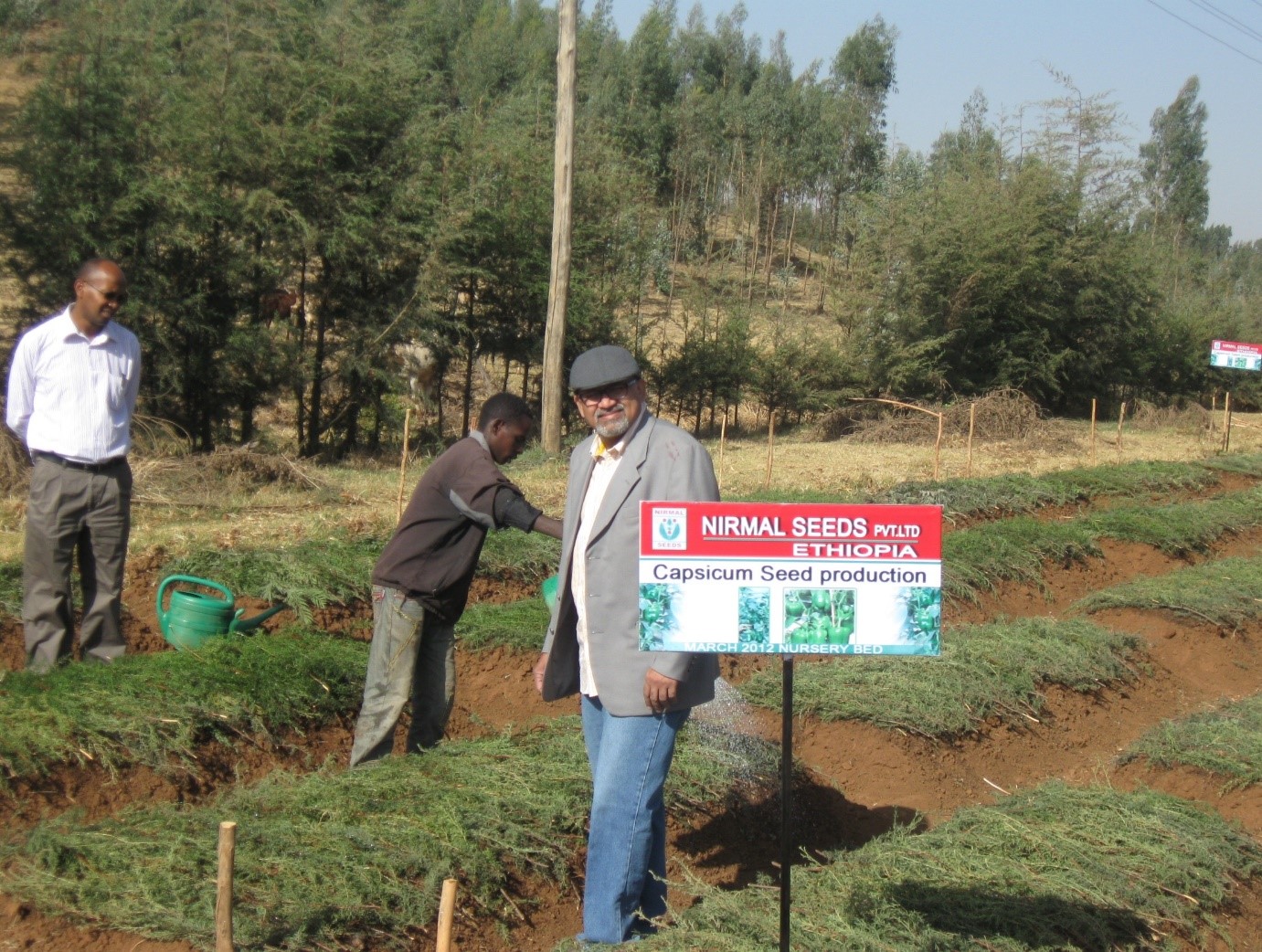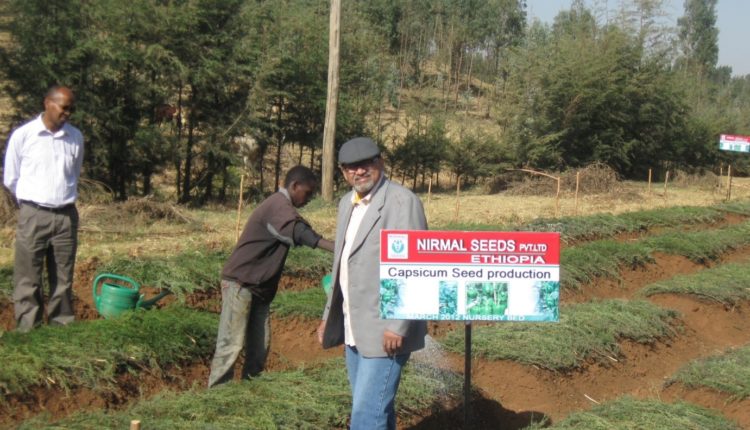07 Ethiopia Seeds production Opportunity
The Ethiopian seed system is characterised by a dominant informal seed sector, making up about 90percent of the system. The use of hybrid varieties is limited to maize. In the formal sector, private actors play a very limited role in terms of both scope and size, with the larger role played by public seed enterprises. The involvement of multinational seed companies is very limited (Alemu 2011).
Agricultural growth has been identified as a driver of economic development in Ethiopia, highlighted in strategic policy documents over the last two decades. The formal seed system in Ethiopia has played a critical role in boosting productivity. The overarching national development plan, the Growth and Transformation Plan (GTP) for 2010—2015, targeted a doubling of agricultural production over its implementation period, which ended in June 2015. This target was expected to be achieved mainly by increasing productivity through the application of improved agricultural technologies including improved seeds and associated agronomic practices.
Official trend data indicates that agricultural growth in Ethiopia over the last few decades was achieved through both increased productivity and agricultural land expansion. Accordingly, the Government of Ethiopia has been investing in agricultural R&D while also enhancing private sector development.
The draft version of GTP II (2015–2020) indicates a target of a further doubling of agricultural production through considerable public investment in agricultural R&D and strengthening capacity to adapt technologies introduced from abroad, plus considerable investment in small-, medium- and large-scale agricultural irrigation and additional emphasis on high-value agricultural commodities (vegetables, fruits, spices and industrial agricultural commodities).
There are four public seed enterprises: the Ethiopian Seed Enterprise (ESE), which is a federal entity, and three
regional companies – Amhara Seed Enterprise (ASE), Oromia Seed Enterprise (OSE) and South Seed Enterprise (SSE). These public seed companies are concerned mainly with important food security crops, principally wheat and maize. There are about 30 private seed companies that are involved in hybrid maize seed production. Of these, two multinational seed companies have their own registered varieties, but the remainder depend on public hybrid maize varieties.
Almost all the vegetable seed marketed locally is imported. Many of the companies that market vegetable seed are merely trading companies without any agricultural background. They serve as agents of seed producers abroad. To be marketed locally, the variety has to be registered and these trading companies play a role in getting the varieties registered in the country.

For vegetable imports, the variety type and phytosanitary certifications provided by the country of origin are recognised. Both public and private seed companies produce seed on their own farms and also through contract farming, either with commercial farm enterprises or small-scale growers. Much of the foreign seed companies’ business is based on the export of seeds of vegetables and hybrid cotton. There have been no applications to release hybrid varieties of cotton or rice.
Agricultural research in Ethiopia is primarily public. The recent achievements of agricultural research are attributable largely to a strategy of adapting agricultural technologies from elsewhere in the world. Strong collaborations between the NARIs and international agricultural research centres of the CGIAR have played a crucial role in this (Teklewold et al. 2012). The contributions of R&D by multinational companies are increasingly recognised by the Ethiopian government, especially their role in making available advanced crop technologies such as hybrids of vegetables and industrial crops like cotton.
Ethiopia has a well-developed regulatory framework that covers company licensing and registration; variety release and registration; seed certification; and seed distribution. Companies wishing to operate a seed business in Ethiopia are required to have suitably qualified personnel, necessary farm equipment and land and internal quality control systems. New varieties must be shown to be distinct, uniform and stable (DUS) and to perform better than existing ones in terms of yield and other parameters, such as disease resistance.
Completely novel genetic material must be tested for two to three years, but varieties that have already been approved in other countries may be tested for just one year in Ethiopian conditions. The regulator has the discretion to release a variety that does not outperform existing varieties if it considers that the performance is acceptable and there is a shortage of released cultivars for that crop.

